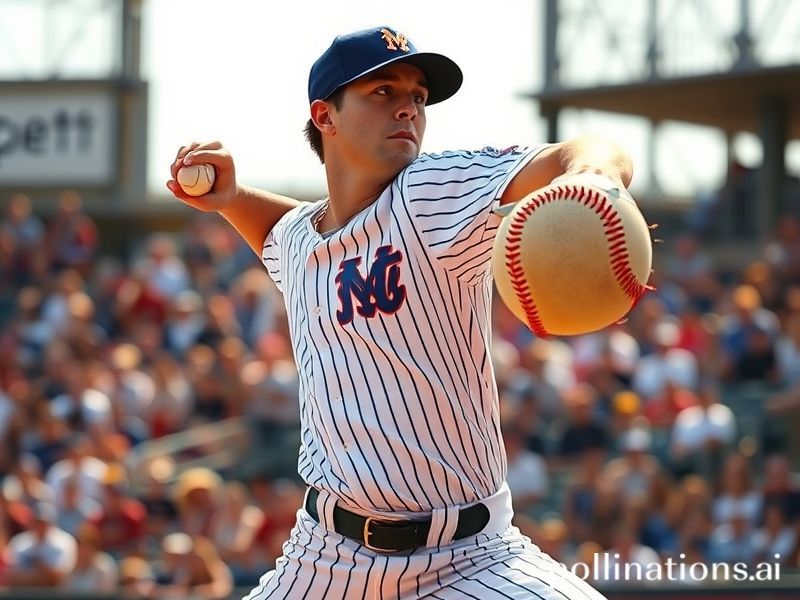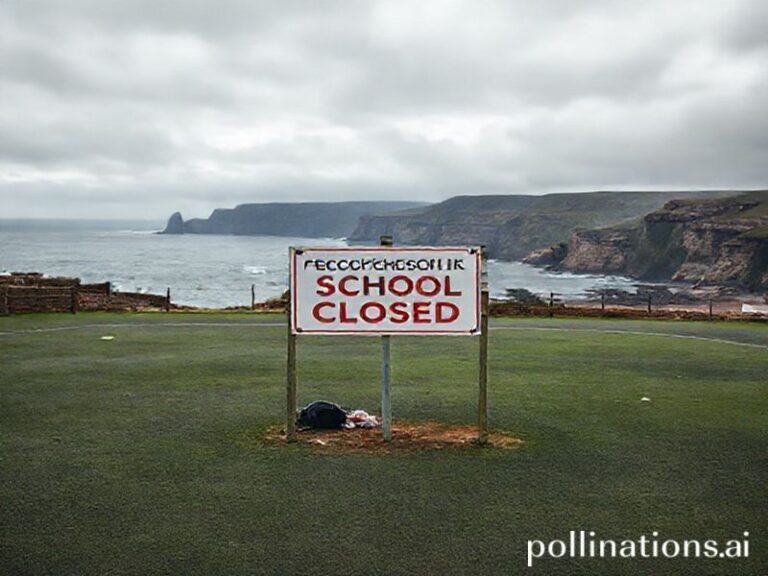Max Scherzer: The $43-Million Right Arm Holding Together a Fractured World
Max Scherzer, the man with two different colored eyes and a fastball that could perforate a UN resolution, has—through no fault of his own—become a walking metaphor for the twenty-first century: dazzling, expensive, and held together by a patchwork of insurance clauses. While the average citizen of planet Earth worries about the price of diesel, Scherzer is guaranteed roughly $43 million this season to throw a baseball 60 feet, 6 inches, give or take a geopolitical crisis. The figure is so cartoonish that the European Central Bank briefly considered adding it to the basket of reserve currencies.
From the vantage point of, say, a street vendor in Lagos still counting the cost of last year’s tomato blight, the spectacle is equal parts miracle and indictment. Here is one American right-hander whose annual salary rivals the entire GDP of Micronesia, performing nightly for audiences who stream him on phones subsidized by rare-earth miners in the Congo working for Chinese conglomerates. It’s globalization’s version of a matryoshka doll—each layer slightly more exploitative than the last, yet somehow still wrapped in the innocent veneer of sports.
Scherzer is currently employed by the Texas Rangers, a franchise named after an 1830s paramilitary outfit whose hobby was land expropriation—because nothing says “pastoral pastime” like celebrating settler colonialism with fireworks and a dot-race. The Rangers play in a retractable-roof stadium that, during the swelter of a Texan summer, guzzles enough electricity to power a midsize Moldovan village. Climate scientists, when they can afford the ticket, watch in refrigerated comfort as Scherzer’s slider bends like the yield curve of a doomed bond market.
And yet the planet tunes in. Tokyo salary-men stream games on bullet trains, Buenos Aires insomniacs argue about pitch counts in group chats, and London fund managers place prop bets on how many batters he’ll strike out before the pound collapses again. Scherzer, blissfully unaware, just glares in from the mound with the intensity of a man who’s read the small print on the social contract and found it wanting. His heterochromia—one eye blue, one brown—has become an accidental emblem of a fractured world: one half Atlantic blue, the other the murky brown of whatever river your iPhone’s cobalt was rinsed in.
The numbers, naturally, are obscene. Three Cy Young Awards, 3,367 career strikeouts, and a WHIP lower than the attendance at most WTO protests. But the true stat is more existential: Scherzer has pitched 2,800-plus innings in the majors, which translates to roughly 42,000 high-stress, high-velocity throws. Orthopedic surgeons in Seoul salivate at the mere thought; elbow ligaments worldwide tremble. When he finally retires, his left arm will probably be displayed in the Smithsonian between the Enola Gay and a Foxconn employee badge—artifacts of American power and its collateral damage.
Meanwhile, the World Baseball Classic—an event designed to spread the gospel of America’s pastime—keeps stumbling over the inconvenient truth that the U.S. roster is basically a hedge-fund with cleats. Scherzer’s teammates include millionaires who vacation in Mykonos and minor leaguers who share apartments with three teammates and a family of raccoons. The tournament’s final in Miami felt less like a celebration of sport and more like a G7 summit where everyone’s jersey sponsor was a multinational bank.
Still, there is something undeniably human in Scherzer’s snarl, a reminder that even within the algorithmic circus of modern athletics, raw, unscripted will can still hijack the spectacle. For three hours a night, the debt ceiling, the semiconductor embargo, and whatever fresh hell Elon Musk has tweeted fade into the background. All that remains is a 38-year-old man trying to spin a sphere past another man swinging a stick.
And when the last out is recorded, Scherzer will trot off to a postgame spread of hydroponic kale and bespoke electrolytes, leaving the rest of us to scroll back into the flaming timeline. But for one pitch, one inning, one game, the world is reduced to a simple binary: strike or ball, hero or goat, hope or the void. It’s not much, but in 2024, it’s practically utopia.







